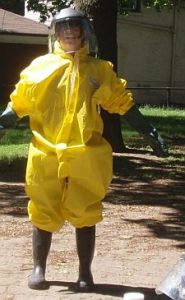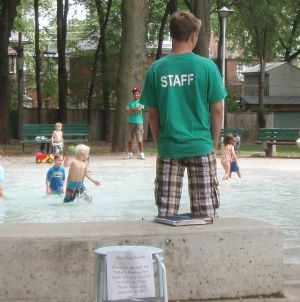Controls: show
 Document
Document
 Comments:
Comments:
[log in] or [register] to leave a comment for this document.
Go to:  all documents
all documents
Options: show
Path:
Looking inside:
 Newsletters - Ward 18 Conservancy
Newsletters - Ward 18 Conservancy
( display item 2)
display item 2)
Contact:
Website:
[home] [about] [help] [policies] [legal disclaimer]
Subsites:
 documents
documents topics
(or
topics
(or  site menu)
site menu)
 blogs
(or
blogs
(or  posts)
posts) library resources
(including
library resources
(including  pictures)
pictures) database (all)
database (all)
Members:
 Newsletters - Ward 18 Conservancy
Newsletters - Ward 18 Conservancy
 return to container details page
return to container details page

 previous display previous display |
next display

|
 Document
Document
 ·2·
June Conservancy newsletter (2)
·2·
June Conservancy newsletter (2)
June 28 2012 29-Jun-2012 [1503]
City spending for Ward 18 parks and recreation: on April 10, CELOS (our little research group) submitted a Freedom of Information request asking for all the Ward 18 parks and recreation budget details. On June 23, 16 pages of detailed “SAP accounting system” information arrived. This document is a good start, although there are a lot of things missing from the SAP system – no wading pool numbers, no maintenance and repair details available (may be available in 2013 with a new system), no link between staff costs and the specific activity. Here's one example of a blind spot: every spring/summer/fall evening around 7 pm, two park maintenance staff drive a truck into Dufferin Grove Park, to check the field house washrooms and lock them for the night. Most days there are recreation staff already working in the park at those times, and until a few years ago, they used to walk over and close the washrooms before they left. The city’s accounting does not show how much it costs to have the truck staff come in extra. But those kinds of details are important to know.
Why the Ward 18 parks Conservancy can do better with the same amount of our tax money: once the first 16-page batch of SAP Ward 18 numbers are organized into clear categories and made public, the missing costs can readily be calculated from other sources. Clear, publicly available budget numbers can help improve collaborative decision-making in Ward 18, involving both staff and park users.
Rinks: the City auditor has just released a highly critical report about a $10.3 million arena energy retrofit project that CELOS has been (unsuccessfully) questioning since 2004. On June 26 an article by Kelly Grant in the Globe and Mail called the program “a disaster for the taxpayers of Toronto” Auditor slams Toronto energy retrofit program. The eight city arenas with local boards of management (like McCormick Arena on Brock Street) recognized the problems early on, and almost all opted out of this expensive project. But the centrally-operated city-run rinks were all signed up. Now the rink operating budget is endangered as a result of the unwise (and ineffective) project. There may be lawsuits going in both directions. The budget pressures resulting from big central decisions like the flawed energy retrofit program are being cited as one reason to dismantle the locally-based outdoor-rink staffing in Ward 18, and replace it with one-size fits-all central staffing on the model of the wading pools. The three Ward 18 rinks would then operate at the same low standard as most of the other city outdoor rinks.
Why the Conservancy is needed for the three Ward 18 outdoor rinks: color:The conservancy can show how the Ward 18 outdoor rinks can operate economically and still continue to be lively, locally-based neighbourhood community centres in the winter-time.

Wading pool danger suit

Wading pool staff in a different bubble
Wading pools: the city’s one-size-fits-all aquatics structure continues to undermine the popular locally-based wading pool programs that have grown up in Dufferin Grove and MacGregor Park over many years. In addition, funds that used to be available for extended wading pool openings during heat alert days have been diverted into numerous, citywide, redundant training sessions with little practical relation to summer programs or wading pools. Funds are also diverted to buy over-the-top “safety” equipment. All wading pool staff are required to put on whole-body hazard suits, with face-guard helmets and steel-toed boots, to add a dose of chlorine to the wading pool eight times a day. The money spent to buy such needless heavy-duty equipment further reduces the amount available for keeping the pools open longer during very hot weather.
The traditional staff-run poolside kids’ activities have disappeared from most wading pools, as young staff are directed to focus entirely on risk – risk of chlorine explosions, risk of abusive parents who must be observed and reported to Children’s Aid, risk of possible pedophiles taking photos.
Councillor Ana Bailao attempted to get Aquatics management to restore some local integration of Ward 18 wading pool staffing with the other park programs. There were a number of meetings, which took a lot of time. But in the end, Aquatics management decided that one size fits all and the Ward 18 wading pools would operate exactly like all the others.
Why the Conservancy is needed for the Ward 18 parks in summer: wading pools have no legal requirements for certified supervision with a predominantly “compliance” focus. In some places wading pools are even run by parent volunteers. That leaves room for the Conservancy to return the five Ward 18 wading pools to being lively family meeting places, with staffing integrated into other park activities, and some mature staff as well as younger ones, all summer long. The wading pools can also return to being important cooling stations extending into the evening on hot-weather days. It’s very likely that other wading pool users in the city will be interested in using our example, thereby restoring their usefulness to neighbourhoods.

Pizza days cancelled
Why the Conservancy is needed for good staffing of Ward 18 parks: Even before replacement hiring for recreation programs in parks had been stopped completely, there were problems. The conservancy can restore the part-time hiring process to include some local, mature, disabled and/or at-risk youth staff, and staff with special talents who can only work flexible hours. (All those categories were discouraged, or altogether lost, before hiring stopped completely.) Part-time staff hours can be increased or decreased depending on the level of activity and donations – easier to do when the scale is small enough, i.e. looking at one ward at a time. Part-time wages can once again be tied to actual job responsibilities and to the best use of the actual Ward 18 budget, instead of being reduced across the board by central policy as at present.
Campfires: One day in May, the City Parks manager and his staff walked around Dufferin Grove Park with the District Fire Chief to look at the campfire sites. They made no attempt to talk to the onsite recreation program staff who run the campfire program, and who were in the park at the time. The Fire Chief was unhappy with what he saw, and ordered major tree trimming and campfire relocation, or even cancelling of campfires. Councillor Ana Bailao later arranged a meeting in her office, with the Parks manager. Enough questions came up that a repeat walkabout was scheduled for June 25, this time including people who know about the campfires, and about trees. The fire chief sent a fire captain in his stead. When the captain found out that the campfires are actually cooking fires instead of bonfires, he said that as long as city’s cooking-fire policy is followed as before, Fire Services has no concerns that such small fires would cause trees to ignite. Forestry said they felt the same.
The main remaining problem is the name. When Fire Services approves the existing campfire pits they will be renamed “designated campfire sites.” If the city’s new procedure rules are applied to Ward 18, that would mean these sites must be centrally booked by City Hall Permits staff, at $90 plus insurance each time, and there would no longer be onsite recreation staff support. At the June 25 meeting, the recreation supervisor explained that the reason why neither Ward 18 campfire users nor campfire program staff were consulted was because this was a “procedure,” not a new “policy.”
The new rule has not yet been applied in Dufferin Grove Park. IN the past year, campfires at Dufferin Grove have brought almost $5000 back to the city in voluntary donations, more than covering the extra staff cost. We’ve asked the recreation supervisor to set up a meeting with campfire users to discuss the imminent changes – no answer yet.
Why a Conservancy is needed for campfires and other local community uses: community campfire can be under the same rules at all the larger Ward 18 parks – when park users ask for a campfire location at their neighbourhood park, park staff can help them to settle on a designated site that is safe and at a sufficient distance from houses to cause less smoke than backyard barbecues. There can be recreation staff support and free access to the city’s existing volunteer insurance. When these additional local campfire sites become available, the demand at Dufferin Grove will lessen, spreading the wealth (in terms of local neighbourhood sociability and night-time park safety). With fewer departments involved administratively, the voluntary $20 campfire donations will cover the campfire staffing costs at all the designated sites.
The Big Picture: since the last restructuring six years ago, the operating budget of Parks, Forestry and Recreation has gone up by over $90 million, to $375 million for 2012. Despite this alarming increase, management staff say that the silo structure is saving the city money. The results that park users see, though, are more layers of non-communicating bureaucracy and less actual service. This has become an issue all over the city, as parks management seeks desperately to extract more permit fees to cover the budget shortfall, but with less value for money.
Sports field users, citywide, rebelled in the spring, saying that the new permit fees for kids’ and youth sports leagues make no sense when the league volunteer coaches are also doing most of the field maintenance.
Community Health Centres that formerly partnered with Parks and Recreation to run programs say that they are now being priced out of access to public spaces. At the same time, unused public spaces stay empty and locked. The groups and agencies are beginning to push back. A group called “Community Recreation for All” (CRFA) has become a voice for agencies, board-of-management centres and groups working with low-income families. A research topic of interest to everyone is: how much of our taxes are spent NOT on direct programs but on administering program fees and permit fees and assigning staff to monitor permit compliance? This question is part of our budget research, and we’re finding friends in that endeavour.
September “everyone welcome” Ward 18 Conservancy workshop – exact date to be determined. CELOS will seek to work with Councillor Bailao’s office to gather Ward 18 park users and find out if there is a widespread public support to shape a locally-based alternative to the central model – and if so, to see what the steps are.
 previous display previous display |
next display

|
 home
home
 about
about
